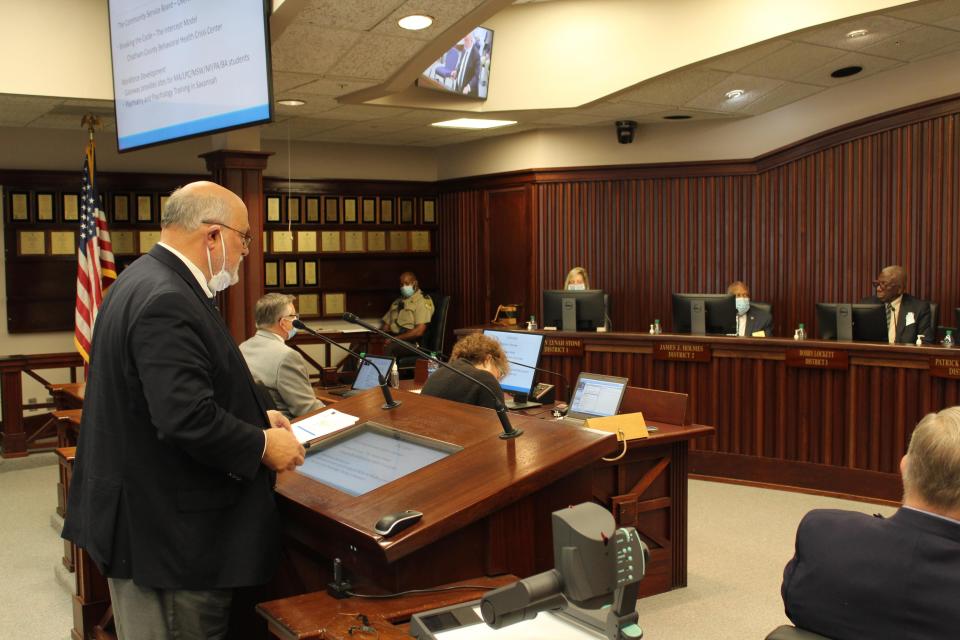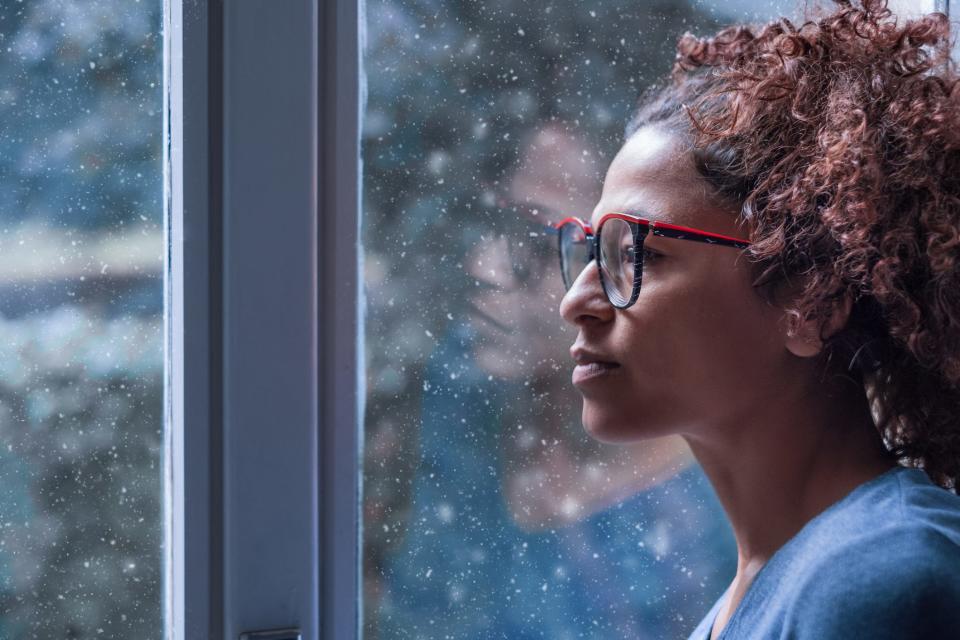'A great step in the right direction': What new mental health legislation means for Georgians
Georgia ranks 48th in the country in access to mental health care, but state legislators hope to improve this defining issue with House Bill 1013, also known as the Georgia Mental Health Parity Act.
The bill, signed into law in April by Gov. Brian Kemp, requires insurers to cover mental health and substance abuse issues the same way they cover physical conditions such as a heart attack or diabetes.
Mental health issues locally: Mental health crisis, learning loss are concerns for Savannah-Chatham schools post-pandemic
More on the bill: Georgia House Speaker unveils bipartisan bill to boost mental health services in state
“If you have an injury to your knee or your back — maybe you get surgery, maybe you don't — but you will almost always get the kind of physical rehabilitation with a physical therapist that it takes to get your knee working correctly again,” said Dr. Mark Johnson, a psychiatry specialist at Gateway Behavior Health.
“Insurance companies don't have to pay for the type of rehabilitation that we know for a fact is needed in psychosis or needed in depression.”

To put that into perspective, patients would have to be suicidal before the insurance company has to pay for a visit. If that standard is applied to any other health condition like a heart attack, a person would have to prove they’re having a heart attack before the care could be paid for.
“It just snowballs from there,” said Sen. Ben Watson (R-Savannah), a co-sponsor of the bill. “And so Georgia, I think, will be a leader in this in that we have tried to do state regulations to require insurance companies to treat mental health on the same par as suitable."
Some local solutions: Improv, role-playing techniques help students work through trauma, challenging social situations
In our local schools: Adolescent mental health is in crisis. Schools are first line of support and need help.
The Mental Health Parity Act also aims to expand access to care by increasing the number of mental health professionals in the state through loan forgiveness, improving data and transparency in the sector; providing for a grant program to establish assisted outpatient treatment programs, and relaxing Georgia’s standard for involuntary commitment by giving police officers and crisis workers help when they’re called into a mental health crisis.
The latter goal relates to SB 403, also known as the Georgia Behavioral Health and Peace Officer Co-Responder Act, which would provide a statewide framework for more co-responder teams. The bill would provide local law enforcement agencies with the opportunity to partner with mental health providers to assist officers when responding to an emergency mental health crisis.
Savannah Police Department’s Behavioral Health Unit is a prime example of this. The unit is designed to create an effective community intervention to reduce the use of jail for adults, young adults, and juveniles who may need alternative services or may have behavioral health and/or substance abuse needs.
Crisis intervention trained (CIT) officers go through intensive 40-hour training in which they are taught how to respond to people who are in an emotional or mental health crisis.
A good first step for Georgia, but many still need to follow
While the bill addresses the mental health system in Georgia, it’s only the first step in what will be many for this long-term investment.
Mary Jo Horton, Memorial Health's behavioral health manager and social worker, manages the hospital’s inpatient and outpatient services. Horton was formerly the mental health clinician for Chatham County Juvenile Court and also ran a therapeutic foster care agency.
Through her experiences, she’s seen how hard it can be to navigate the mental health system.
Psychologist: During these mentally challenging times, do this to counter 'gloom and doom'
“Even though Savannah definitely has more resources in some rural areas, we are certainly a patchwork system of services, so it's very frustrating,” Horton said. “I've really seen a variety of experiences and I've seen the frustration and the pain and suffering that families go through to get the proper services. There is instability with counseling agencies … with parents, there's not a lot of just community education regarding what is the difference between sending my child to a psychiatrist, as opposed to sending my child to a licensed therapist, as opposed to getting an evaluation.”
Mental health has long held a public stigma that has led to a lack of understanding from family members, friends, and co-workers as well as fewer opportunities. When the focus is put on minority communities, seeking mental health care is stigmatized.
The inequity in access is compounded by structural challenges and highlighted by the fact that just one in three African Americans who struggle with mental health issues will ever receive appropriate treatment, according to the National Alliance on Mental Illnesses.
Local emphasis on mental health: Savannah rapper Clay Hodges learns how to be good to himself on new album, 'B Good 2 U'
Minority communities also have fewer options when they are uninsured. According to the Kaiser Family Foundation, in 2018, 19% of Hispanic people had no form of health insurance.

“I think that the biggest question a family can ask themselves is what am I currently connected to,” Horton said on the difficulty of access. “Communities have their own informal networks, and I think sometimes we don't utilize what is already working for some communities. … People get so nervous to ask for assistance, but when they go to their neighbor and they share, they go to their community or their faith community and they share, all of a sudden, other people then feel empowered. And what you find then is they then create a really wonderful support network for each other.”
Johnson said the next big thing is to take on housing. He explained that stable housing and an established routine can improve individual mental health.
Psychologist: Expect an increase in Georgia’s suicides with new permit-less carry law
Both Johnson and Horton believe the bill is a step in the right direction.
“This is not the end-all to be all. We've been doing mental health legislation since I've been in the legislature and we'll be doing mental health legislation after I'm out of the legislature,” Watson said.
“But the point is, I think this is a great step in the right direction; I think it's a huge step.”
Laura Nwogu is the quality of life reporter for Savannah Morning News. Contact her at LNwogu@gannett.com. Twitter: @lauranwogu_
This article originally appeared on Savannah Morning News: GA politics: What to know about the Georgia Mental Health Parity Act

